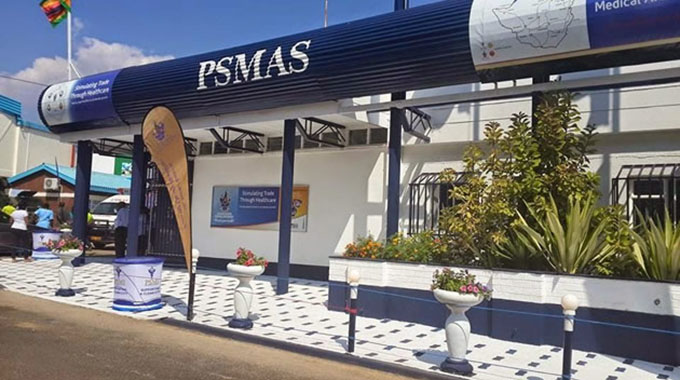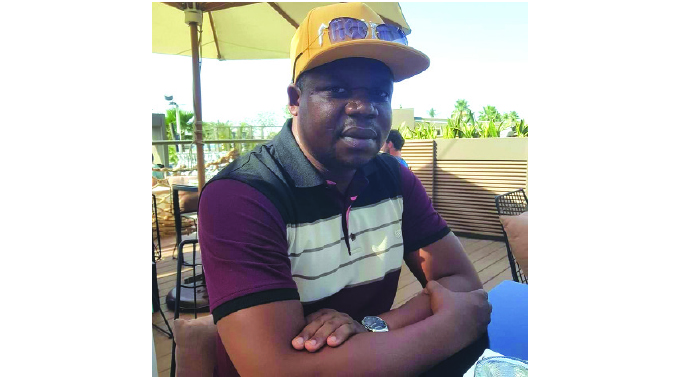Make quality health services accessible to all

Andile Tshuma, Chronicle Reporter
THE news making rounds in the world of health communication this week has been on the PSMI/ PSMAS situation. So much has not been going well in the Premier Service Medical Aid Society, which left many people, primarily public servants unable to access health services using their medical aid service provider.
A raft of measures have since been put in place to try and “save” PSMAS, with Government recently injecting $4 billion to help the institution get back on its feet.
However, the past few days have been a blow to many civil servants after Government announced the scrapping of subsidies on adult dependants of civil servants under the PSMAS scheme.
This means that the principal members will now have to pay the market rates for their adult dependants.
This comes as a blow to the average worker, as many of them are taking care of elderly, sickly and vulnerable parents who definitely need to be on medical aid to at least get some decent health services.
Most of these pensioners had their income eroded and can therefore not afford medical aid, save for the benevolence of their offspring.
To expect civil servants to pay full subscriptions for adult dependants with their current salaries will surely burden many to the point of dropping their adult dependants, with no alternative options available, save for hoping on God, the ancestors and whatever families believe in, to protect those elderly people who will nolonger have any form of health insurance.
Outside of the PSMAS issue, health cover is generally becoming prohibitive given salaries of most workers yet the enjoyment of the highest attainable standard of health is one of the fundamental rights of every human being regardless of one’s race, religion, and political affiliation, economic or social status.
A trip to the pharmacy is to be avoided at all costs as it can give you a serious shock. The rise of drug prices is outpacing all other areas of healthcare spending and if you have medical aid cover, you still have to contend with paying hefty amounts in shortfalls and co-payments despite the high monthly subscriptions.
Getting sick is becoming more and more expensive and as prices of drugs in pharmacies rise, there’s a growing market of medical drugs sold on the streets where nearly half of them are counterfeit and can potentially cause further health complications.
As private hospitals, doctors and laboratories continue pushing up their fees faster than inflation, the medical aid societies are following suit.
This is forcing many out of private health care and private health insurance as they can no longer afford the fees and subscriptions.
To add insult to injury to the struggling members of the public, public hospitals recently increased fees and reintroduced maternity fees which were scrapped to curb maternal deaths and infant mortality.
This is necessary to revive the health sector and improve service delivery but many people cannot afford to put a plate of food on the table, let alone health care.

President Mnangagwa with Premier Services Medical Aid Society officials after winning a Gold Medal at ZITF recently
Universal health coverage is one of the targets for the achievement of the Sustainable Development Goals by 2030 and Government has committed to deliver affordable quality health care for all by 2030.
The health sector was allocated $473,8 billion in the national budget that should see a significant improvement in the health delivery system as well as sustaining gains already made in the sector.
However, this is only about 11 percent of the total national cake for the year and falls short by four percent, to meet the 15 percent of the Abuja Declaration, which is the minimum that countries should set aside for health in their budgets.
Most private hospitals have since resorted to demanding deposits of up to US$3 000 for a patient seeking admission for hospitalisation and subsequent procedures.
Laboratory procedures, medicines and all other associated medical services have gone up with most providers using the US dollar black-market rates to peg costs of their services.
Some medical aid societies have also intensified engagements with amenable service providers to do away with co-payments and shortfalls.
Health insurance is a necessity as people without health insurance often find it difficult to pay huge unexpected medical bills, which in turn impacts on the quality of healthcare rendered to them in times of emergencies.
Some people are resorting to alternatives such as traditional medicines, seeking traditional healers and taking supplements as they cannot afford conventional health care. This is, however, dangerous for people on prescription medication as they must not default on their medication.
A month’s supply for a patient on dual hypertension and diabetes medication costs more than the equivalent of US$100 on average and pharmacies often use the parallel market rate which brings more problems to patients with chronic illnesses. Many elderly people on medical aid are on diabetes and hypertension medication.
Government is urged to intensify its efforts to pay its employees more decent salaries that will enable them to comfortably subscribe at competitive market rates for their adult dependants, to avert public health challenges for the elderly and vulnerable.
The right to health for all means that everyone should have access to health services.
A lot has been achieved and a lot still needs to be done as many people are yet to access basic health services. — @andile_tshuma












Comments